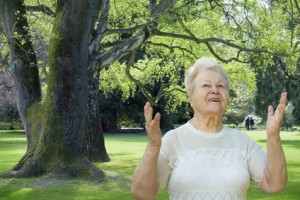Why seniors need vitamin D
The more we are learning about vitamin D the more we understand about how vitamin D deficiency affects seniors. If a person doesn’t get enough vitamin D through diet, supplements, or sunlight, it can have disastrous health effects.
Vitamin D is produced in the body in response to the skin’s exposure to sunlight. It can also be found in a few foods including some fish, egg yolks, and in fortified dairy and grain products. It can also be taken as a supplement.
Vitamin D is necessary for producing strong bones. It helps the body use calcium. In the past vitamin D deficiency was associated with rickets, in which bone tissue doesn’t properly mineralize, which leads to soft bones and skeletal problems. We also need vitamin D to help our muscles move, to regulate cell growth and carry messages in the nervous system. Current research is showing us more and more about the other health problems that are associated with vitamin D deficiency.
Some of the reasons for a vitamin D deficiency are:
- Seniors may not get adequate vitamin D in the food they eat.
- They often have limited exposure to sunlight. If you don’t get out in the sun at least a little every day, you may not be getting enough vitamin D.
- Older adults can have reduced intestinal absorption of vitamin D
Seniors who do get the recommended daily amount of vitamin D enjoy these benefits:
They are at lower risk for osteoporosis and other bone disorders, and they can preserve their mobility and therefore, their independence. They are at lower risk for falls and fractures. They are also able to prevent cardiovascular problems, diabetes, and some cancers.
It’s clear that the benefits of getting sufficient vitamin D are well worth the little extra effort it may take.
Check out our adult family homes at assisted living Vancouver WA

